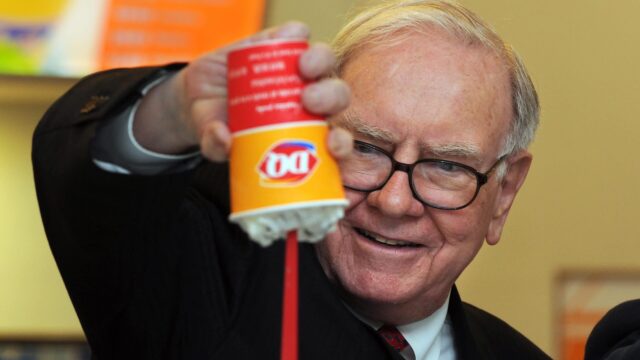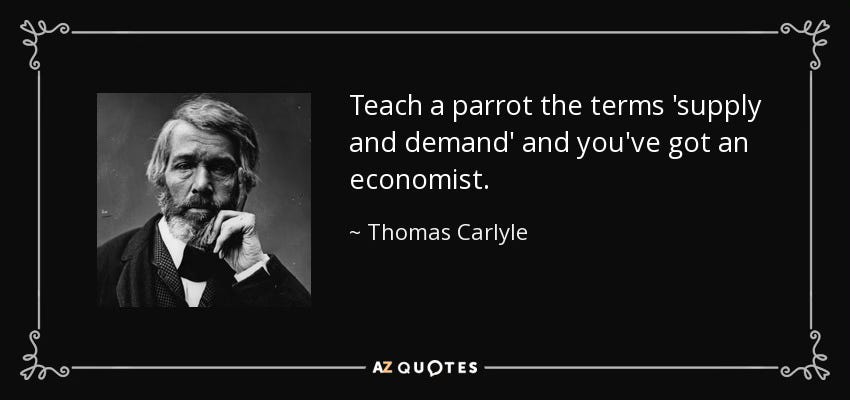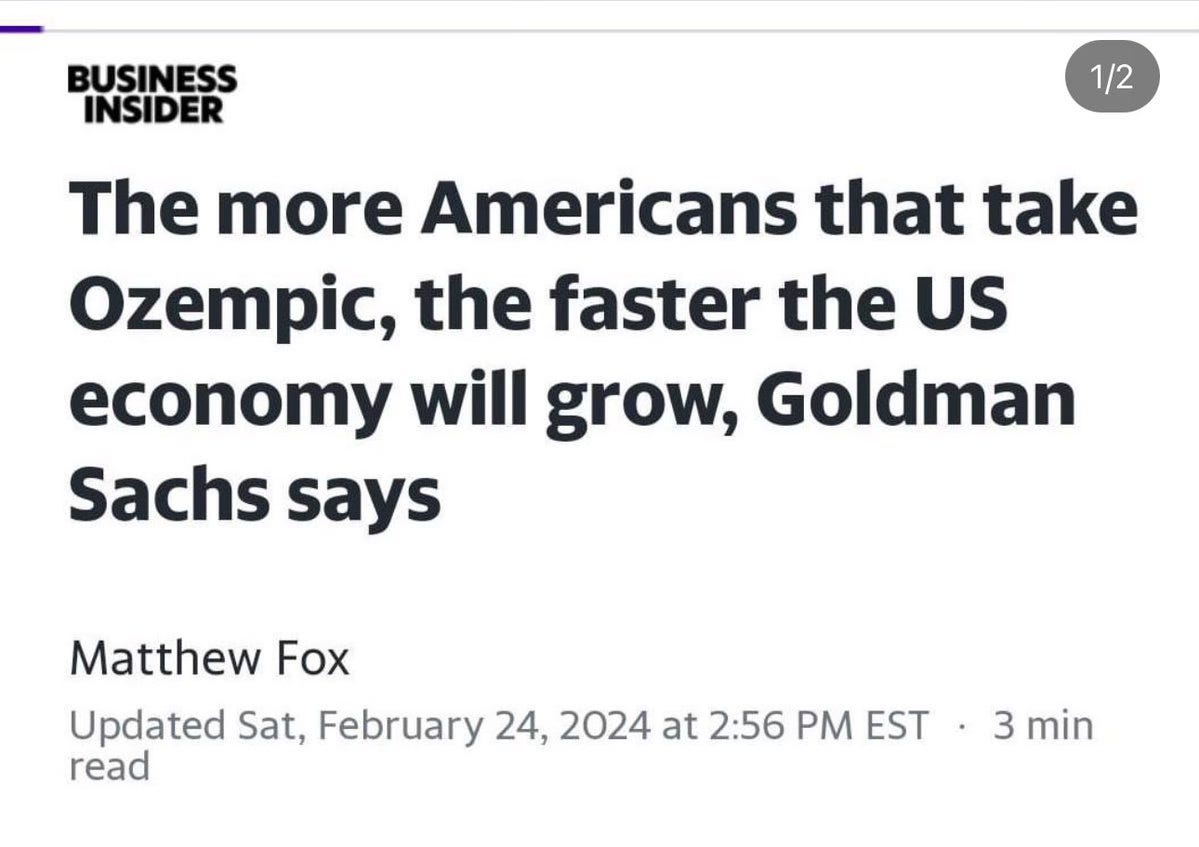The Economics of Mediocrity

In his Reflections on the Revolution in France, Edmund Burke lamented that “the age of chivalry is gone”:
That of sophisters, economists, and calculators has succeeded; and the glory of Europe is extinguished for ever. Never, never more, shall we behold that generous loyalty to rank and sex, that proud submission, that dignified obedience, that subordination of the heart, which kept alive, even in servitude itself, the spirit of an exalted freedom. The unbought grace of life, the cheap defence of nations, the nurse of manly sentiment and heroic enterprise is gone!
His rhetorical fireworks make it easy to overlook the claim about who replaced the knight: economists and their ilk, theorists infatuated with efficiency and uninterested in “heroic enterprise” or “the spirit of an exalted freedom” or anything great at all. Greatness isn’t rational, countable, scalable—and thus has an uncertain place in the economists’ society.
This is why the virtue of generosity, always central to the code of chivalry, is especially important for any kind of revival: because it confronts the spirit of smallness under which we now live. As KH Digby noted, “Chivalry is only a name for that general spirit or state of mind which disposes men to heroic and generous actions and keeps them familiar with all that is beautiful and sublime in the world.” To give generously is to stake a claim for something better than the transactionalism that ultimately seeks to make all men little and bribable. When everything is for sale, a man’s honor is also on the table.
In lamenting economics, I don’t mean the simple reality of trade or some supposedly harmless academic discipline. I mean instead the worship of commerce, the assertion of undergraduate theories about how the world works, and the subversion of an older and better way of life—all of which have proven inevitable once we start listening to economists. Before the late 18th century, economics didn’t really exist as its own discipline. Prosperity was desired, but it was subordinated to larger considerations of statecraft, ethics, theology; the people of the past were more intent on loving God, getting to Heaven, and making their ancestors and descendants proud. They thought the commercial spirit threatened these aims, so they carefully maintained certain brakes, like skepticism toward merchants. And for good reason. The Lord told us that “No man can serve two masters. For either he will hate the one, and love the other: or he will sustain the one, and despise the other. You cannot serve God and mammon.” But economists insisted on giving the pursuit of wealth the same attention as other things long understood to be more important. And as the Lord warned, it slowly took over.

This is the natural course of economics, of commercialism let off its leash. To my great embarrassment, I write as someone who fell under the sway of the economists’ vision and spent too much time meditating on the Laffer curve and trying to convince the unenlightened that the market will solve our problems, if we only got out of its way. Then it slowly occurred to me, as I watched the United States of America become a mere economic zone rather than a proper country, that I was controlled opposition. Economics had become an ideology for underwriting civilizational decline, and no one who thinks too hard on marginal tax rates or any other economic nuance is any threat to the ruling order overseeing the decline.
The biggest problem is the indifference or disdain of economists toward real virtue. They tend to think it a curious relic (at best) or an obstruction to optimized production (at worst). In one of the greatest coups in human history, they taught God-fearing, family-oriented, and tradition-loving people to valorize a materialistic system that relentlessly pushes boundaries and subverts religion, family, and tradition. Many who would otherwise proclaim that “the love of money is the root of all evil” took to cheerleading for capitalism, all because it seemed the only alternative to the horrors of Sovietism. Confusion inevitably arises about what capitalism actually means and whether “real capitalism” has ever been tried, and this confusion plays into the hands of the enemy. Our wholesome desire to live as we see fit somehow morphed into a one-sided love affair with Big Business, which created the gigantic economic machinery through which the institutions upholding the good life could be relentlessly bombarded. Eventually freedom and markets themselves were undermined by a confused fixation on an abstraction called the Free Market.
Economists taught us to see profiteers like Buffett and Bloomberg as champions to be studied and admired. And I went along with it. My favorite novel was Ayn Rand’s Atlas Shrugged, a dramatization of larger-than-life industrialists doing battle against collectivists for the fate of the world. Rand suggests that your ultimate contribution can be measured by the profits you turn, a tidy and logical philosophy of mathematical morality: value offered minus resources used. The only problem is that the rough hands of reality break it like a cheap Asian toy.
Had we Randians read Herodotus’ Histories, we would have met an older and more damning notion about the effects of commerce on a man’s soul. In the opening chapters, Croesus advises Cyrus on how to put down a rebellion within the empire: “Tell them to educate their sons to be shopkeepers. If you do this, sire, you will see they will become women instead of men and thus will then pose no danger or threat to you of any future rebellion.” Modern economics is the decree of Croesus, systematized. Teach the young to idolize clever bankers and technologists, curb their more rousing aspirations, make them harmless—do all this and men will become women by the millions. You can see hints already in the vague androgyny of Benjamin Franklin’s 18th century shopkeeper ideal, which champions money-making virtues like industry, frugality, and cleanliness, but has less use for more heroic ones like courage and magnanimity.
Soon enough this program casts doubtful shadows even on the shopkeeper virtues, as economic development turns against independent proprietors. Under the conditions established in recent decades, Larry’s Used Book Store stands little chance against Amazon. It seems highly convenient for ruling elites, too, because shopkeeping at least supports an independent livelihood not monitored and guided closely enough. They’d prefer that Larry become an assistant shift leader at the nearest Target or an Amazon fulfillment center warehouse associate, working for the company that ran him out of business. He will have little stake in this role, and in time the virtues of industry and frugality go the way of courage and magnanimity. Just clock in and follow instructions, Larry.
Frankness is another virtue undercut. Speaking freely and being one’s own man become all the more unlikely when money is made the chief measure of a man’s worth and when tremendous financial pressure can be brought against those who hold unapproved opinions. For many, silence or dishonesty becomes the cost of doing business or keeping your job. This applies just as much to those who are technically wealthy. The rich man is financially answerable in countless ways: bankers can deny him services, investors can pull support, activist groups can boycott him. A decade ago, Brendan Eich was pressured to step down as CEO of Mozilla, the company he started, for donating to a ballot proposition which called for the banning of gay marriage in California (and which passed, by the way). More recently, Kanye West was reported to have lost almost 80% of his net worth when he went off-script. Accountability is important, but men need to be accountable to proper authorities. Commercialism helped make us accountable instead to the Woke State—and thus elevated the power of every social justice zealot and outrage artist, most of whom suffer from mental illnesses and/or demonic possession. It’s more like a hostage situation than actual accountability. In comparison with modern businessmen, the land-owning peasant of the Middle Ages was relatively independent.
More than any other virtue, prudence is targeted and dismissed, like an employee whose job has been automated by economic progress. Sound judgment isn’t necessary when people are taught to conduct themselves according to the breathlessly simple principle of chasing the money! Wealth building becomes the whole of prudential judgment. Surely Adam Smith meant something more nuanced when he suggested the metaphor of an “invisible hand” directing self-interested action toward socially beneficial ends, but his successors unleashed a creed of crudeness—profit as the ultimate guide to conduct.
As a direct result of this attempt to replace discernment with the pursuit of gain, modern man has lost the criteria by which to judge policies and developments. All he can do is ask whether they are good for The Economy. Never mind whether these things are good for actual people—whatever is good for The Economy is good for people, the economist says. You can now read think-pieces proclaiming any number of unwholesome things (inflation, daycare, and OnlyFans) to be good for The Economy. I’ve even read pieces arguing that divorce can drive greater demand for housing, higher workforce participation rates, increased consumer spending, which means the breaking of marriages and families is actually good for The Economy. By this logic, obesity is also a good development because it means higher sales of Chicken McNuggets and more work for heart surgeons.

In these ways and others, economists discourage human excellence. Few crimes could be more severe—it’s what makes these theorists completely unfit for rule. They need to be shoved back in lockers. After we do that, we need to remember that any culture which wishes to thrive must applaud virtue and assist in the attainment of it, even if it trims GDP. That’s what a good society does: it makes virtue a little easier. Personal initiative is no less essential, but is aided. Virtue becomes increasingly rare when a culture marginalizes it and sets conditions which make the attainment of it a lonely struggle, requiring borderline-absurd levels of strength and independence.
After demoting the virtues, economists then teach men to clamor for convenience. The amenities and gizmos of modern life so often cater to laziness, saving us from labor and freeing more time for consumption on the couch. We grow accustomed to these conveniences and turn impatient when they are no longer so cheaply available. In the process our lives are not actually made better; we become weaker instead. Economists claim this is just how man is—but really they fashion him to be this way, whiny and helpless. Economics is the secular theology of mediocrity.
https://thechivalryguild.substack.com/p/the-economics-of-mediocrity
